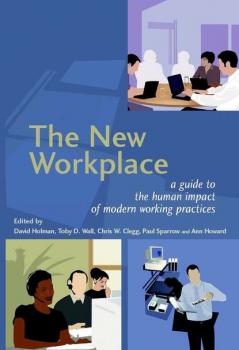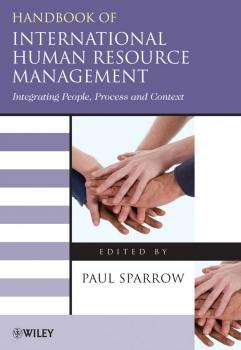Paul Sparrow
Список книг автора Paul SparrowThe New Workplace
Just-in-time, «total quality management», «lean manufacturing», «call centres», «team work», «empowerment» – most people in business have heard these buzz words, often offered as a panacea to all profit ills. So why don't they always work? Can you combine them anyhow? If not, why not? The New Workplace Handbook is a comprehensive guide to the evidence available on how modern working practices and technology affect the people in organizations. Within a broad psychological framework, leading experts examine how people work, their experience of work, the impact on productivity and performance and the human resource implications. Guidance is offered on a range of different methods, tools and practices that can be used to guide the design and implementation of modern working practices to ensure that pitfalls are avoided and the best possible results are obtained from new initiatives. Indispensable for consultants, this Handbook will also be useful for students and scholars in the psychology of business, human resource professionals and anyone involved in the management of new working practices.
The Essentials of the New Workplace
The original hardback edition of The New Workplace examined modern business terms such as total quality management, just-in-time production, e-business, lean manufacturing and teleworking. It explored what these terms really mean and what effect they have in practice – especially their impact on productivity and performance and their social and psychological consequences. This paperback is a shorter, revised version of the original book. It will focus on working practices, especially technology orientated ones, which are the most relevant and innovative for consultants.
Handbook of International Human Resource Management. Integrating People, Process, and Context
From the mid-1980s to the turn of the 1990s the international HR field was considered to be in its infancy. There continues to be both an evolution of territory covered by the field – a series of successively evolving cultural, geographical and institutional challenges faced by the multinational corporation (MNC) – as well as more critical questioning whether this has created an expanded or a fragmented field. This book brings together the latest research on important “issues-driven” concerns that the field of IHRM now has to face, absorb, interpret then reanalyse through international lenses. This volume gives attention to those aspects of MNC behaviour – choices about location, how they organize local subsidiaries, choices made about technology, capital and labour, and choices made about investments and strategies – that are subject to institutional influences. It also gives voice to a number of contemporary issues – reverse knowledge flows, skill supply strategies, employer branding, e-enablement, outsourcing, global networks – that now need to be accommodated within the field. Broadens the IHRM field to cover comparative and institutional perspectives Provides a multi-level analysis of globalization phenomena at the individual, organization, and macro level Focuses on the current problems and issues driving the attention of IHRM Directors


